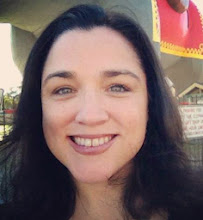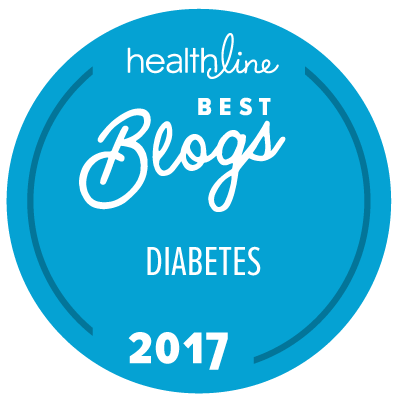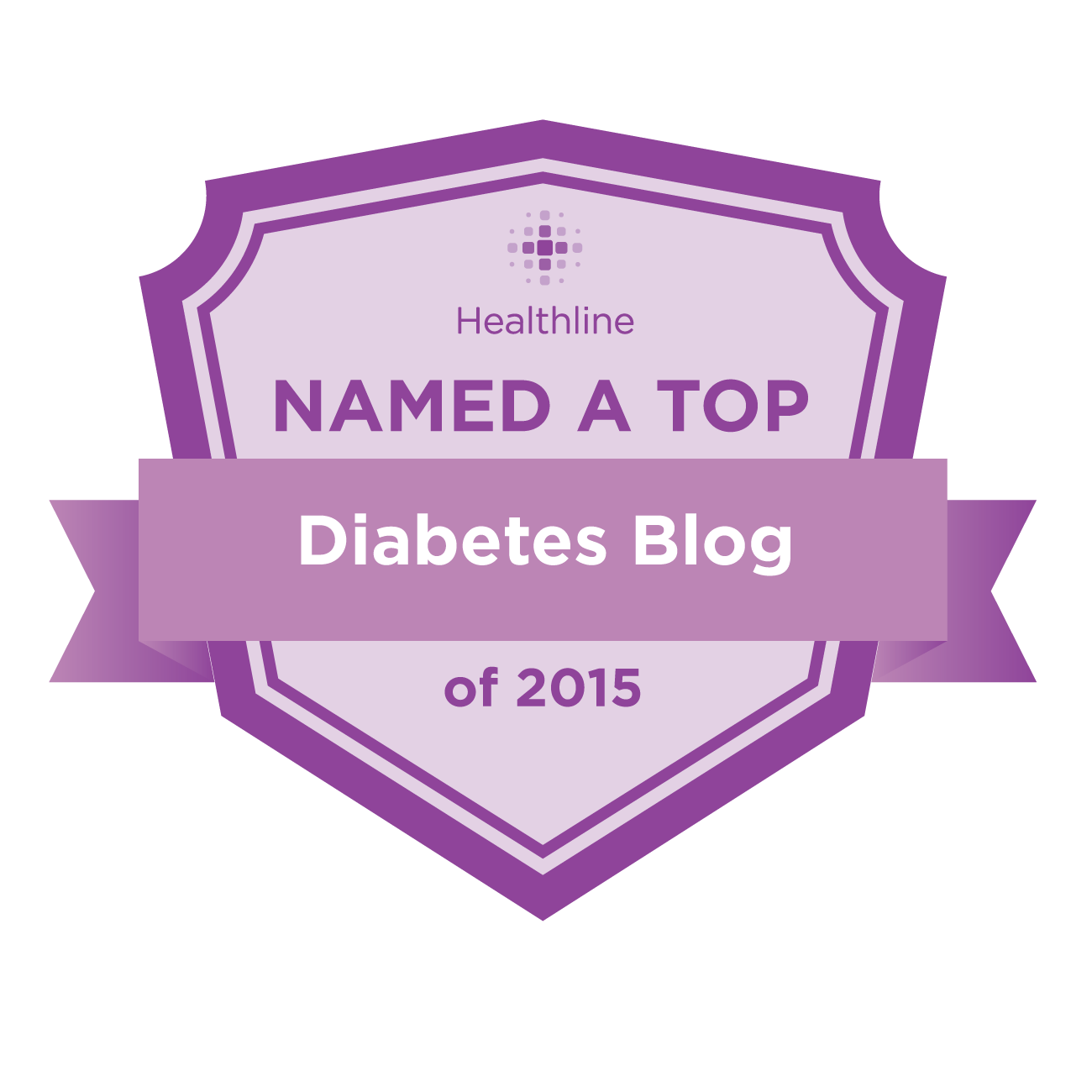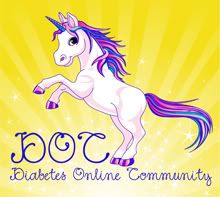The UCLA Study is all about children with type 1 having a tough time making the transition from their peds endos to an adult endo.
They followed children for years and noticed this SHOCKER: Young adults with diabetes have a really rough time transitioning from their peds endo to an adult endocrinologist.
YA THINK?
When I posted the link on Facebook other former children with diabetes chimed in and agreed that this information was:
A. Nothing new
B. Infuriating and comical at the same time
C. Bullshit
Had those conducting the study taken a little time to listen former children with diabetes who are now adults living with diabetes wax poetic about problems transitioning to adult Endos? Because they would have realized that this is NOT a new problem - It's almost a damn near standard problem across the diabetes board that needs to be fixed - Immediately!
Transitioning from a child to an adult is a bitch without a chronic illness, but add diabetes to the mix and it’s whole other shit storm to deal with.
I didn’t want to jump the gun, so I put a call out on Facebook about former cwds switching to adult endos and the response was GREAT (So much so that THIS awesome blog post from Melissa at SweetlyVoiced came out of it,) and my post with DOC responses will be up soon.
Also, I picked up the phone on Tuesday and called UCLA & I emailed Dr. Lotstein (the Dr. doing the study) a detailed email that afternoon and asked her the following questions:
1. Transitioning from Peds to adult Endo's has been a huge issue for patients with diabetes for decades, when did Dr. Lotstein first notice the issue?
2. Has Dr. Lotstein talked with former children with diabetes who are well into adulthood and living with diabetes regarding transitioning?
3. Will the second phase of the study be as long the first, what types of support systems will be studied & is the Diabetes On-line Community being considered as part of the support system?
4. How many phases are in the study?
5. How much money is being/will be spent on the study?
6. How do you plan to incorporate what you've learned in the study into a real life and when??
For the record, I have yet to receive an answer from her.
And for the life of me I don't understand why YEARS are being spent studying this phenomenon when there are literally thousands and thousands of adult examples of this very thing.
Why not take the money that’s being spent on a multi-phased study and develop real time solutions in the form of patient support groups, family psychologists and HCP liaisons to help with the young adults who are no longer children with diabetes, but who are young adults who need to transition to an adult Endo.
The waste of the study participants valuable mental and physical health is all I can think about!
Why am I so passionate about this? Because I know what happened to me.
I went to Children’s Hospital in Philadelphia (CHOP) every three months like clockwork from the time I was diagnosed at age 8, until I was almost 20 - When they finally kicked me out.
I remember crying and begging them to let me stay.
Diabetes was hard, and my Peds Endo & company were like family - They were all I’d known in my life with diabetes.
And even when I wasn’t the perfect child with diabetes - they still loved me - And they cared enough to let me know when I needed to do better.
And at the time of my switch I wasn’t doing great with my diabetes.
I think my a1c was somewhere around 13 - MAYBE.
It was the Diabetes Dark Ages, my family shared one meter that took 2 minutes and at least half a liter of blood at each sitting.
There were only two kinds of insulin on the market and the rules of diabetes were entirely different.
And I was struggling with so much change in my life, not to mention I was suffering from a major case of Diabetes Burnout.
I’d lived with diabetes for almost twelve years at that point - I just wanted to be a normal college kid.
It was the Diabetes Dark Ages, my family shared one meter that took 2 minutes and at least half a liter of blood at each sitting.
There were only two kinds of insulin on the market and the rules of diabetes were entirely different.
And I was struggling with so much change in my life, not to mention I was suffering from a major case of Diabetes Burnout.
I’d lived with diabetes for almost twelve years at that point - I just wanted to be a normal college kid.
Turns out my new adult Endo was at the University of Pennsylvania, and he was a big name in the diabetes world. He’d written books, done lectures, and he considered himself a diabetes god.
Dr. Big Name wouldn’t let my parents come in to the appointment with me - I was an adult and parents were not allowed.
And I thought that maybe I could handle it - but I was scared.
When the big day came my father dropped me off and told me he’d pick me up in few hours at the campus bookstore.
And I remember sitting at Dr. Big Name’s big desk while he looked at my labs for what seemed like forever.
And I remember starting to cry when Dr. Big Name told me I wasn’t a good diabetic.
With numbers like these you’ll follow in your sister’s footsteps - DO YOU WANT THAT? he said sternly.
Me: NO. I’m trying.
Dr. Big Name: Well you’re not trying hard enough - You’re not disciplined enough.
You know what diabetes can do, you do know that it’s s killing your sister, don’t you?
Do you want it to kill you, too?
Do want to do that to your parents? Do you want them to suffer even more?
And at that point I don’t remember what I said, but I knew I was never coming back to his office, no matter how many books on diabetes he wrote.
I left that office with tears streaming down my face and I remember feeling so incredibly alone, afraid and defeated.
I felt like I would never own my diabetes so why even try?
I felt like I would never own my diabetes so why even try?
If diabetes was going to kill Debbie, then there was a good chance it would kill me too.
It took me a good hour to pull myself together and calm down.
When my dad picked me up an hour and fifteen minutes later, I told him that I was NEVER going back there.
And I never told my father what Dr. BigName said about my sister or me dying - I knew it would hurt him and I knew he’d get angry and I didn’t want to be the cause of any more diabetes pain for my parents.
So I just told my dad that Dr. Big Name was an asshole.
But I thought about What ‘Dr. Big Name the Asshole” said to me for years and years and and well into my adulthood.
And up until I finished college and moved away, I went to my father’s Endo in my small hometown.
She was a good Endo & tough, and her waiting room was always filled.
She didn’t make me cry, but I knew I was challenging patient. I was young, most of her patients were not.
and I didn’t want to be there.
I was angry about a lot of things back then, including my diabetes.
I was angry that my sister was dying from a disease we both shared, angry and afraid that history might repeat itself, angry about everything.
It was tough to be an adult, especially a college aged adult with diabetes who tried her best to be “normal.”
When my sister died, I remember going in for my D checkup and everyone in the office looked at me with pity - And I wanted to be anywhere but there.
I still had more than my share of shitty numbers in college, but at least I was going to see an Endo.
And when I finally moved to Philadelphia after I graduation, I found a great Endo - An Endo who talked with me, not at me.
And when I finally moved to Philadelphia after I graduation, I found a great Endo - An Endo who talked with me, not at me.
And that Endo introduced to the amazing Dr. J - And because of both of those amazing Endocrinologists my world changed for the better.
But in my heart I know that there was damage done, both mentally and physically in those years of struggle.
Seriously, how could there not?
And I wish I’d known that there was a huge number of us who grew up with diabetes that had a really tough time becoming an adult with diabetes - both in the adult Endo’s office & out of it.
I wish I'd known that it wasn’t all my fault that the transition had been so incredibly difficult.
I wish I'd know that I wasn't bad or terrible - I was just a 19 year old who was trying to be a grown up and figure it all out.... A 19 year old who was trying to find her place in the world.
I wish I'd know that I wasn't bad or terrible - I was just a 19 year old who was trying to be a grown up and figure it all out.... A 19 year old who was trying to find her place in the world.
And that’s why I wanted to throw my laptop against the wall when I read about the UCLA study.
Why waste money to prove what we already know to be?
Instead of spending the money on the next phase of the study, which (and I'm quoting here,) "is to directly follow young adults transitioning to adult care to see what happens as they age and to examine how different types of support aimed at easing the transition affect health outcomes."
Why not spend the money on hiring people to help with transition from pediatric endocrinology to adult endocrinologists?
Why not spend the money on hiring people to help with transition from pediatric endocrinology to adult endocrinologists?
Why not create markers that can be put in place in real time and across the country to help people?
Why not be the change that we all want instead of spending money to eventually put the changes in place - But lose another diabetes generation in the process?
You don’t have to be a Rocket Scientist to see the problem, you don’t even have to be an Endo - But you do have to listen and fix the problem- ASAP, because peoples lives and future good health depend on it.





























9 comments:
Kelly, you're right again.
How about a mentor program where older adults with diabetes help younger adults with diabetes make the transition?
Sometimes, we all need assistance... thanks for sharing your feelings and experiences.
I read this at the office and I'm trying my best to not cry my heart out.
Your experience with Dr big name, was the way my diagnosis was done. This idiotic doctor just kept asking whether I was fat as a kid and to not complain about my illness ever again, do the shots and shut up.
I was diagnosed in high school so I didnt make a transition from ped to regular endos but I feel I was still a child when I was diagnosed and trying to get to adulthood with this illness was so complicated, I wished I had found the DOC sooner!
Hopefully this investigation will spark up the interest to raise funds to a cure or something like that and not just to make the ones involved look good.
xo
I've been doing a lot of research on this on my own actually, for professional reasons. The study is probably testing a way to transition these patients, not just finding out IF it's a problem. There are a lot of studies going on trying to find out the best way to transition kids with chronic disease, and they are well worth the time and money. I'm hoping that's what it is, and that you get some good feedback.
I'm glad you posted about the good small-town adult endo as well as about Dr. Bigname Asshole endo. I think the experience is more about the personalities of both doctor and PWD and less about the general age of the doctor's patients.
For me, I was glad to get out of pediatrics. In my late-teens, it still seemed awkward for me to go to my "regular" doctor (pediatrician) and sit in a waiting room with balloons painted on the walls, toys on the floor, and crying babies everywhere. That followed me to endocrinology, where I was ready to finally become an adult.
I was also ready to remove the proverbial handcuffs that tethered me to my parents and came with being a "child".
I didn't find the transition tough at all. It was in the same hospital, and (I assumed) all my records followed me. But of course there were things that were different, the most obvious is the fingerstick A1C versus the previous lab A1Cs. Plus, the new doc had a good personality (the pediatric doc didn't have a bad personality, he just didn't have much of one at all) and we got along. But most of all, I felt like an adult, and I felt like *I* was in charge: not my parents, not my doctor. And that was a real confidence booster...
Kelly,
I don't have diabetes, but my daughter does. She is 13 and I fear the day we will say goodbye to her amazing diabetic team.
I have heard that 50% of newly diagnosed type 1 patients are over the age of 18. What a disservice it is to not have a more positive transition.
One of my friends has a son who was diagnosed at age 19. He was diagnosed with bg of over 1000 and was literally at death's door. They stabalized him in the hospital and sent him home the next day with insulin...no training. It took her 4 months to find a doctor for him. This is so extremely frustrating!
I am graduating this summer with a masters in licensed professional counseling. I would like to serve the type 1 community...especially those transitioning from ped to adult...or those newly diagnosed past 18 years old.
Your post made me realize that I didn't get an endo till I'd been PWD for 20 years. Diagnosed at 17, it was 5 days in the hospital then home with the R & N, GP's making changes annually. First endo-type was a Dr that ran a diabetic clinic in the Czech Republic for 30 years. He told me that I had 40 years from onset as a T1D. He (hopefully) was wrong, I'm hitting 38 years in May. Good post, thanks
So I had the exact same initial reaction. Also, the tagline with the photo "He might be ready to leave the house, but is he ready to control his diabetes?" was horribly condescending.
I went and read the article in Pediatrics (I'll email anyone a copy if they want it). I think Abby's thought about figuring out how to BEST transition kids is more what they are going for.
In the discussion, they talk about youth with higher a1cs transition to adult care at later ages, potentially because the peds endo is more concerned about those kids with her a1cs and recognizes that they need more support.
In fact, they suggest that part of the problem is the lack of consistent care during this time period, not necessarily the transition itself. So when you have to leave pediatric care at age 20, maybe you don't go see a new endo right away (fueled by burnout & other psychological issues associated with that age), and so even though you're at the time in life where you might most need the support of an endo, you don't go do it because it takes more effort than calling for a follow-up, or having the automatic every 3 month visit.
I think the media coverage is overstating the "effect" of the transition. This paragraph from the discussion sums up the issues pretty well, I think.
"Further research is urgently needed to explore reasons why glycemic control deteriorates in late adolescence and young adulthood and if alterations in the timing of transfer from pediatric to adult care can prevent this outcome. Young adulthood is a time of multiple changes, not only in health care needs, but also physical maturation and evolving relationships with others. A better understanding of how life transitions affect health-related behaviors, access to health care, and health care use is needed. More specifically, research focused on examining patient, parent, and provider attitudes and behaviors, as well as health care system processes and obstacles will help to identify potential causes and interventions that may mitigate the risk of deteriorating glycemic control with transition in this population.
Research is also needed to understand how providers can best support the adolescent/young adult population. Previous studies have shown that physician continuity and intensive care coordination can help improve patient transition to adult care. Studies of various counseling strategies, including family-oriented counseling and youth empowerment strategies, are also promising."
So I'm hoping you'll hear back from the lead researcher, because, if only from the article, I think the intentions and the understanding the article provides is more fruitful than the media coverage suggests. Remember that any interventions on improving transitions have to be based on good research showing the problem, so sometimes stuff that seems like NODUH to us living the disease is the necessary first step to a larger program.
Stephen -
EXACTLY
Nicte-
I'm so sorry you had a rough time & I'm so glad you found the DOC!
Abbs -
Transitioning is hard & I hope the feedback in these studies are quick, swift & bring about a change sooner rather than later!
What really bothers me is how long the first phase of the study took - They've been tracking these children since 2002, 11 years is a long time between phases.
Scott -
It's all about peronalities - both the HCP & the patients!
I'm glad your transition was a smooth one - you're lucky!
And yes - small town endos can be very good - A big name Dr. Assholes - not so much!
Careyliscious -
Good for you for being the change that you want to see!
Bruce ITM -
Let me be the first to wish you a happy 38th Diaversary!!!
Beth -
While I see your points and agree with most of them, I am still disturbed by the article. They've been following these peds patients since 2002 - that's over a decade. How long will the phase 2 portion of the study be?
I hope it's not another 11 years because a lot damage could be done by then & we can't turn back the clock.
Kelly
It was endearing to read about someone else anger. I don't remember much about my pediatric team. I do remember them being nice, but not much about the process. I do remember the transition to adult endo's, and how nobody wanted me to go to the only one in town. I did, though, and rarely ever saw him-- maybe once or twice a year. I got fed up and changed.... but the support for adult diabetics is not what it is in pediatric care, that's for sure.
Post a Comment